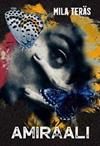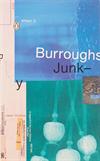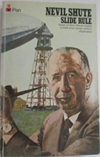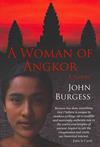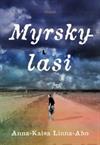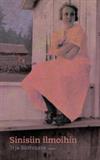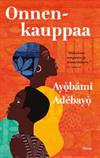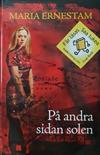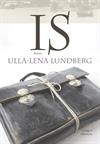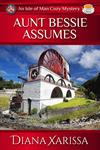
Essential Rumi
4 journalers for this copy...
A large collection of the work of Sufi mystic and Poet, Jellaludin Rumi (b. 1207).
"Dance, when you're broken open.
Dance, if you've torn the bandage off.
Dance in the middle of the fighting.
Dance, when you're perfectly free."
"Dance, when you're broken open.
Dance, if you've torn the bandage off.
Dance in the middle of the fighting.
Dance, when you're perfectly free."
This book is packaged up and ready for the post office; will soon be on its way to fellow BookCrosser, Katyan. Bon Voyage!
This book was waiting for me when I came home from work today. I read randomly some pages from it, and everything I found was so beautifull that it made me speecheless. Thank you so much FeralReader for this book of ancient wisdom!
The very first thing that I read was
"Why use bitter soup for healing
when sweet water is everywhere?"
The very first thing that I read was
"Why use bitter soup for healing
when sweet water is everywhere?"
mmm... This book has been a long time in my shelf. I have been reading it every now and then and I still have quite mixed feelings: Some of the poems (like in these journal entries) are reallyreally beautiful, full of wisdom and beauty. Some of them are quite different, mixing everything up. Maybe it is the mystic side of Rumi that I didn't understood so well, I'm not so familiar with this kind of literature. I found it quite odd when he was first talking about God and then about drinking wine and so on... But I guess it was about his time too, even it makes me surprised how these 2 so different aspects are mixed.
But thank you for sharing this treasure, let's see where it will travel next...
But thank you for sharing this treasure, let's see where it will travel next...
Journal Entry 5 by katyan at Suomenlinna in Helsinki, Uusimaa / Nyland Finland on Thursday, June 5, 2008
Released 15 yrs ago (6/7/2008 UTC) at Suomenlinna in Helsinki, Uusimaa / Nyland Finland
WILD RELEASE NOTES:
RELEASE NOTES:
This book will be released at the Finnish National Bookcrossing Seminar!
This book will be released at the Finnish National Bookcrossing Seminar!
I picked up this book because a friend of mine always refers to Rumi.
I picked this today from the pile of BC books on Margih's living-room floor :-) I've read quite a bit of Rumi as Finnish and English translations, and I acknowledge it's rather easy to become fanatic about him :-)
Here's something I wrote about Rumi (and Ramon Llull) in my journal back in 2007:
Reading two classic mystics, both ranking among the most influential in their respective fields, side by side was an interesting experience—even if it only meant scratching the very surface. Rumi and Llull share the notion of love, manifested as resembling worldly love but in fact directed towards the Creator. For both, love seems to necessarily involve suffering and punishment and an extremely hierarchical worldview, following the theological background of both Islam and Christianity. But, whereas Rumi's poetry goes out to the world and speaks in a practical language, Llull is introvertly devoted and martyric: he is a "fool for Love".
Jalaladdin Rumi (1207—1273) was a Sufi poet, jurist, and theologian. Rumi's original love poems were composed as ghazals, undoubtedly rich in allusions and metaphors, expressing praise and love for his great spiritual love, Shams of Tabriz. Rumi performed his worship in the form of dance: he is reputed to have dictated his poems to scribes and disciples while spinning around possessed by divine ecstasy. (His follower disciples founded the Mevlevi Dervish Order in 1273.)
In his afterword, the translator claims that the most popular poet in today's America is—Rumi! Confirmed by the BBC, the argument is based on the superior number (196) of Rumi publications available at the leading online bookstore and the recent 'Rumi boom' popularizations.
True, Rumi ranks among the most significant in all of Persian literature. I have previously read Rumi as English translations. The Finnish translation is no doubt accurate and carefully studied, but I felt the formulations somehow lacking a poetical spirit and historical substance. The conventions of contemporary poetry strip the poems of all extra accessories. Consider the following excerpt:
Sinä olet jyvä
sinä olet verkko
sinä olet viini
ja viinimalja.
Sinä olet keitetty
sinä olet raaka
älä jätä minua raa'aksi!
Jos minun ruumiini
ei kiertäisi, kääntyisi
sydämeni
ei vaeltaisi niin paljon.
Sinä olet mennyt.
En minä muuten puhuisi paljon.
Meanwhile: Ramon Llull. One of the greatest medieval Catholic mystics, Llull (1232/1235—1315) was a fervent exponent of Christian mission at a time of the Arab rule in Spain. He was also a polymath, a Doctor illuminatus who published encyclopedically in the fields of philosophy, theology, law, medicine, and astronomy. Llull wrote in Latin, Arabic, and his native Catalan; he is considered the Father of Catalan literature.
Simplistic on the surface, Llull's pieces for contemplation are aphoristic by nature. Some of the poems reflect Provencal trubadour lyrics; all involve deep theological mysteries. Translated into Finnish by a prominent theologian, the book features 366 pieces to provide contemplation for each day of the year.
Medieval mystics recognized two essentially different types of contemplation: the contemplation adquisita and the contemplation infusa. The former refers to wisdom acquired through practice, while the latter is a God-given gift.
Rakastettuni, joka panet minut rakastamaan, ellet auta minua, miksi halusit luoda minut? Ja miksi kannoit minun edestäni niin ankarat ahdistukset ja kestit niin julman kärsimyksen? Koska olet niin paljon auttanut minua nousemaan, auta minua, rakastettuni, myös laskeutumaan alas muistaakseni ja vihatakseni syntejäni ja puutteitani niin että ajatukseni voisivat paremmin nousta haluamaan, kunnioittamaan ja ylistämään sinun suuruuttasi.
Here's something I wrote about Rumi (and Ramon Llull) in my journal back in 2007:
Reading two classic mystics, both ranking among the most influential in their respective fields, side by side was an interesting experience—even if it only meant scratching the very surface. Rumi and Llull share the notion of love, manifested as resembling worldly love but in fact directed towards the Creator. For both, love seems to necessarily involve suffering and punishment and an extremely hierarchical worldview, following the theological background of both Islam and Christianity. But, whereas Rumi's poetry goes out to the world and speaks in a practical language, Llull is introvertly devoted and martyric: he is a "fool for Love".
Jalaladdin Rumi (1207—1273) was a Sufi poet, jurist, and theologian. Rumi's original love poems were composed as ghazals, undoubtedly rich in allusions and metaphors, expressing praise and love for his great spiritual love, Shams of Tabriz. Rumi performed his worship in the form of dance: he is reputed to have dictated his poems to scribes and disciples while spinning around possessed by divine ecstasy. (His follower disciples founded the Mevlevi Dervish Order in 1273.)
In his afterword, the translator claims that the most popular poet in today's America is—Rumi! Confirmed by the BBC, the argument is based on the superior number (196) of Rumi publications available at the leading online bookstore and the recent 'Rumi boom' popularizations.
True, Rumi ranks among the most significant in all of Persian literature. I have previously read Rumi as English translations. The Finnish translation is no doubt accurate and carefully studied, but I felt the formulations somehow lacking a poetical spirit and historical substance. The conventions of contemporary poetry strip the poems of all extra accessories. Consider the following excerpt:
Sinä olet jyvä
sinä olet verkko
sinä olet viini
ja viinimalja.
Sinä olet keitetty
sinä olet raaka
älä jätä minua raa'aksi!
Jos minun ruumiini
ei kiertäisi, kääntyisi
sydämeni
ei vaeltaisi niin paljon.
Sinä olet mennyt.
En minä muuten puhuisi paljon.
Meanwhile: Ramon Llull. One of the greatest medieval Catholic mystics, Llull (1232/1235—1315) was a fervent exponent of Christian mission at a time of the Arab rule in Spain. He was also a polymath, a Doctor illuminatus who published encyclopedically in the fields of philosophy, theology, law, medicine, and astronomy. Llull wrote in Latin, Arabic, and his native Catalan; he is considered the Father of Catalan literature.
Simplistic on the surface, Llull's pieces for contemplation are aphoristic by nature. Some of the poems reflect Provencal trubadour lyrics; all involve deep theological mysteries. Translated into Finnish by a prominent theologian, the book features 366 pieces to provide contemplation for each day of the year.
Medieval mystics recognized two essentially different types of contemplation: the contemplation adquisita and the contemplation infusa. The former refers to wisdom acquired through practice, while the latter is a God-given gift.
Rakastettuni, joka panet minut rakastamaan, ellet auta minua, miksi halusit luoda minut? Ja miksi kannoit minun edestäni niin ankarat ahdistukset ja kestit niin julman kärsimyksen? Koska olet niin paljon auttanut minua nousemaan, auta minua, rakastettuni, myös laskeutumaan alas muistaakseni ja vihatakseni syntejäni ja puutteitani niin että ajatukseni voisivat paremmin nousta haluamaan, kunnioittamaan ja ylistämään sinun suuruuttasi.
I took this book out to the garden with me today and instantly remembered why reading Rumi is always such an infinite pleasure. The only things required are solitude and a moment of peace and quiet, and Rumi will do the rest.
Barks's English translations are extremely enjoyable. Of course, not knowing any Persian, I can only judge by the outcome, the elegance and the sharpness of language. However, it seems almost a miracle that texts from over 800 years back can in fact touch me in such a direct way.
I love the concept of this Expanded Edition, stated in the translator's preface. Completely falling in line with this concept, it is hardly surprising (but still is!) that there are modern-day curry recipes appended at the end of the book. Very, very interesting: I almost feel compelled to become a hermit, devoting my time to studying the Rumi and Coleman Barks equation! (I shall be keeping this copy in my permanent collection until I find a replacement copy.)
One negative thing about Rumi, however, is how reading these poems inspires and positively bewilders me, but at the same time momentarily strips me of my own ideas and images. If I brought a notebook with me to the garden, thinking I might do some writing of my own, too—forget it. It's always the same after having read something truly exquisite: it takes a day or two to start out afresh, and even then, it will have affected me in some ways.
Barks's English translations are extremely enjoyable. Of course, not knowing any Persian, I can only judge by the outcome, the elegance and the sharpness of language. However, it seems almost a miracle that texts from over 800 years back can in fact touch me in such a direct way.
I love the concept of this Expanded Edition, stated in the translator's preface. Completely falling in line with this concept, it is hardly surprising (but still is!) that there are modern-day curry recipes appended at the end of the book. Very, very interesting: I almost feel compelled to become a hermit, devoting my time to studying the Rumi and Coleman Barks equation! (I shall be keeping this copy in my permanent collection until I find a replacement copy.)
One negative thing about Rumi, however, is how reading these poems inspires and positively bewilders me, but at the same time momentarily strips me of my own ideas and images. If I brought a notebook with me to the garden, thinking I might do some writing of my own, too—forget it. It's always the same after having read something truly exquisite: it takes a day or two to start out afresh, and even then, it will have affected me in some ways.
To be reread. Funny how time and time again, I resort to Rumi for inspiration... yet end up finding a way out of a creative funk quite elsewhere. I don't know; maybe it's Rumi after all who does the necessary unwinding, or the pleasurable tearing open of my heart. (In his Introduction to the New Edition, Coleman Barks, too, writes of [--] an opening of my heart, a sense of reckless longing, an expansion of my sense of what's possible in a poem, and in a life. Carl Jung would say that I encountered a form, or an expression, of my anima.) Maybe the best of mystics are more ruthless than romantic; and what should this say of their readers?
*
This'll also be my Persia (~ Afganistan/Iran/Turkey) book in the Countries of the World reading challenge http://www.bookcrossing.com/forum/30/541674/
*
I did some underlining while reading, and the underlined passages in turn made new poetry:
Experience that breathing.
Drink the wine that moves you.
In disciplined silence it opens.
Don't worry about transient things. Think how the animals live.
These pains that you feel are messengers.
This bare way of life is honest and beautiful.
We can hide nothing when we're like this.
You miss the garden,
because you want a small fig from a random tree.
Let yourself be silently drawn
by the stronger pull of what you really love.
The mountain
could not hold that light.
Bismillah your old self
to find your real name.
"Who lives in this love I have?"
"The sign is in the face."
*
This'll also be my Persia (~ Afganistan/Iran/Turkey) book in the Countries of the World reading challenge http://www.bookcrossing.com/forum/30/541674/
*
I did some underlining while reading, and the underlined passages in turn made new poetry:
Experience that breathing.
Drink the wine that moves you.
In disciplined silence it opens.
Don't worry about transient things. Think how the animals live.
These pains that you feel are messengers.
This bare way of life is honest and beautiful.
We can hide nothing when we're like this.
You miss the garden,
because you want a small fig from a random tree.
Let yourself be silently drawn
by the stronger pull of what you really love.
The mountain
could not hold that light.
Bismillah your old self
to find your real name.
"Who lives in this love I have?"
"The sign is in the face."

